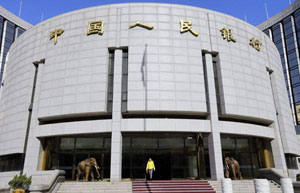According to the China Trustee Association, more than 10 percent of new trust loans in 2013 were extended to the property sector, and the majority of that went to small developers who didn't have other viable funding channels.
Zhang Zhiwei, China economist with Nomura Securities Co Ltd, said China's property sector has significant excess investment, especially in third- and fourth-tier cities, which accounted for 67 percent of housing under construction last year.
 |
For example, the market in Ningbo shows signs of overbuilding. According to data from the China Real Estate Information Corp, Ningbo had salable inventory of 32 months as of Feb 28, compared with the average of about 15 months in 13 major cities CRIC tracks.
Moreover, the manner in which the Chinese authorities resolve these defaults will have important implications.
Song Huiyong, a research director at Shanghai Centaline Property Consultants, said that neither commercial banks nor the PBOC should be held accountable for a particular company's capital woes, especially as the government aims to let the market play a bigger role.
Song said Xingrun's capital shortfall was a special case reflecting poor management. "We believe the authorities will force shareholders and some of the lenders, especially from outside the traditional sectors, to realize their losses," said Chang.
Local governments will likely find ways to complete and deliver the units under construction to avert challenges from buyers who have already paid for their units.
This may include providing incentives to stronger homebuilders to take over the troubled projects, Chang said.
Despite challenging operational and financing conditions, S&P said it expects most of the developers to be able to weather the current turmoil.
They're usually listed and have reasonably good bank relationships and capital market standing. Many have lowered their exposure to trust financing over the past two years, the ratings agency said.
Wang Ying contributed to this story.
 |
 |
